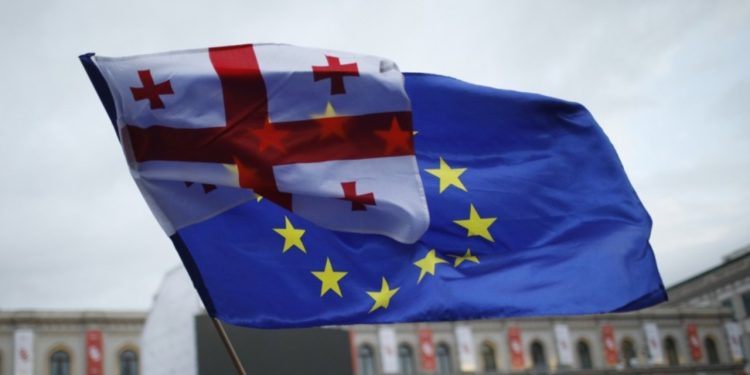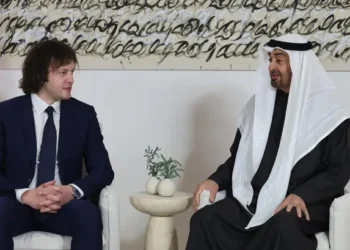The European Commission does not recommend the opening of negotiations on joining the European Union with Georgia, it is noted in the much anticipated report on enlargement, published by the European Commission on October 30.
The report assesses the extent to which Georgia has fulfilled the nine recommendations given by Brussels and, accordingly, whether it deserves to continue the European integration process after having received candidate status last December.
It is on the basis of this report that the decision-making body of the EU policy, the European Council, which consists of the heads of the member states, must make a decision. The European Council has already stated twice that Georgia’s European integration is de facto stopped due to the actions of the Georgian authorities- in particular, their adoption of the “Russian law” and other anti-Western steps.
The European Commission notes that if Georgia does not change its current course, which threatens its path to the EU, and does not show tangible efforts to resolve outstanding issues and implement key reforms, they will not be able to consider recommending the start of negotiations with Georgia.
“The granting of candidate status to Georgia in December 2023 was not accompanied by sufficient political commitment of the government to implement necessary reforms on the way to the European Union,” the report notes.
“On the contrary, there have been significant negative developments, including the passage of the Foreign Influence Transparency Act and the Family Values Act. Also, the anti-EU narrative of the officials has significantly influenced the trajectory of Georgia. As a result, the accession process of Georgia was de facto stopped.
“In addition, Georgia has made little progress in implementing the nine recommendations set for 2023.
“Parliamentary elections were held in Georgia on October 26. According to the preliminary findings of the OSCE/ODIHR mission, there were several shortcomings in a tense and highly polarized environment. Among the shortcomings are: current changes in the legislation of the electoral process, frequent violations of the secrecy of the vote, procedural inconsistency, and voter pressure and intimidation, which had a negative impact on public confidence in the process.
“These preliminary results confirm the need for comprehensive electoral reform, which was already discussed in previous key recommendations. The final recommendations of OSCE/ODIHR should be implemented as soon as possible.
“Constructive and inclusive dialogue across the political spectrum is critical now. The European Union calls on Georgia to adopt democratic, comprehensive and sustainable reforms – in accordance with the key principles of European integration. Georgia should make the implementation of nine recommendations a priority.
“Also, Georgia should repeal the Foreign Influence Transparency Law and Family Values law, and refrain from other activities that undermine the rule of law and fundamental rights, which are the most important part of EU-Georgia relations. Georgia should also renew efforts to achieve gender equality.
“Georgia’s adherence to the EU’s foreign and security policy remains low, at 49%,” the report reads.
The document also points out a noticeable rise in direct flights between Georgia and Russia and addresses Georgia’s cooperation with the EU to monitor sanction avoidance.
“Although Georgia has taken steps to prevent sanctions violations through its territory, Georgia has not joined the sanctions against Russia and Belarus,” it continues.
“Also, the authorities should stop spreading misinformation about EU values and instead fight disinformation and hostile political rhetoric. The authorities must ensure that attacks on the media, the opposition and activists are properly investigated and ensure that an appropriate environment is created for such investigations.
“Comprehensive and effective steps should be taken to fight the corruption in high echelons and oligarchic influences. Also, a means should be created for sufficient public and parliamentary control of law enforcement agencies and to guarantee the independence of public institutions.
“The European Union remains committed to deepening its partnership with Georgia – in line with the aspirations of the vast majority of the Georgian population.
“If Georgia does not reverse its current course – which jeopardizes its path to the EU – and shows real efforts to respond to key concerns and key reforms, the Commission will not be able to recommend considering the opening of accession negotiations with Georgia,” the report concludes.
For Ukraine and Moldova, accession negotiations were opened in June 2024.














